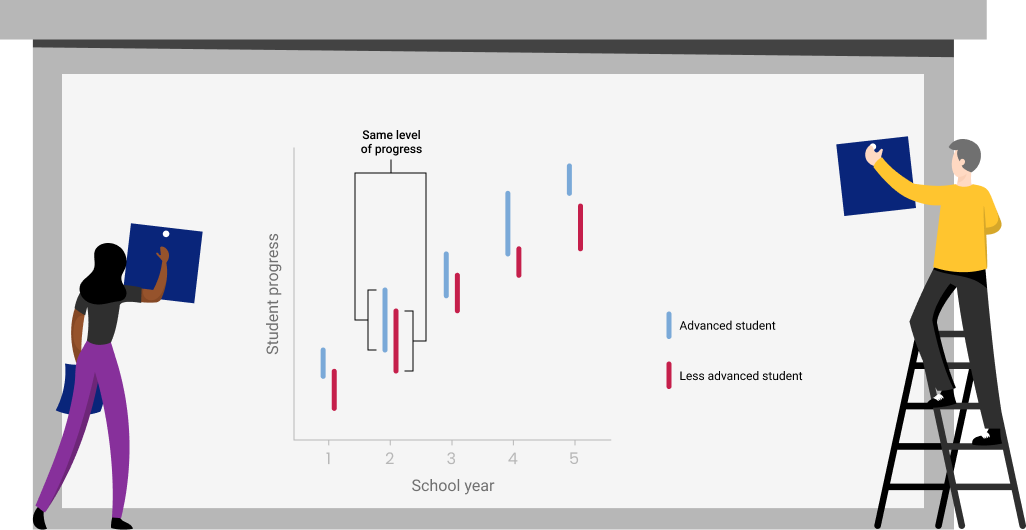The progressive achievement cycle
Evidence
Using data to understand where students are in their learning
Supporting the next steps
Informing teaching and learning through:
- Setting personal stretch targets
- Development of teachers’ capabilities
- The use of learning resources
Tracking progress
Monitoring growth of student achievement over time
Helping every student demonstrate learning progress

A student who receives a 'D' grade every year may believe they are making no progress at all when, in reality, they may be progressing as much as a student who consistently receives an 'A’ grade.
Scales: a powerful way to describe learning progress
- Progressive Achievement scales detail the skills, knowledge and understanding typical at various points in the learning process in a domain – a roadmap for describing and measuring student progress.
- ACER has mapped scales for learning progression in several domains, including reading and mathematics.
- Conventional and adaptive PAT assessments use the same scales, allowing for seamless integration of data between assessment types.
ACER’s Progressive Achievement approach uses evidence from cutting-edge research to inform world-class student assessments, teaching resources and professional learning.
Join thousands of educators using the Progressive Achievement approach to target teaching and improve learning.

